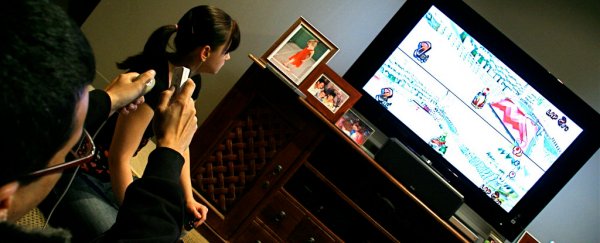New research shows that playing action-packed video games can improve your visual motor skills – skills that are especially useful for driving and similar tasks.
So far there's been little analysis of the link between visuomotor control and gaming, but the researchers say spending time on the PlayStation or Xbox could be a cheap and easy way of getting people sharper and trained up for the road.
For the first part of the study, a driving simulation was used to measure response times of seasoned gamers (those playing at least five hours a week for the past six months) against newbies. It turns out the gamers were much better at sticking to their lane and dealing with adverse conditions.
The researchers then attempted to prove causality by training up volunteers with no gaming experience. One group spent their time playing Mario Kart, while the other trained on the much more sedate RollerCoaster Tycoon III. In the end, unsurprisingly, the Karters were found to be much more improved in terms of motor skills.
"Our research shows that playing easily accessible action video games for as little as five hours can be a cost-effective tool to help people improve essential visuomotor-control skills used for driving," said the lead researcher, Li Li of New York University Shanghai in China.
While action games work better than theme park simulators, the game you play doesn't have to involve driving directly to confer these benefits. The study also found that players who spent time on first-person shooter (FPS) Unreal Tournament improved their motor skills too, and that game was actually more effective as a training aid for experienced drivers.
"The differing effects of driving and FPS video games on the sensorimotor system suggest that for experienced drivers, who have stable control but need to improve their ability to predict input error signals, training with FPS rather than driving video games is more effective," explained Li.
"In contrast, for novice drivers, who are still struggling with obtaining stable control, training with driving rather than FPS video games is more helpful."
So if you've got a driving test in the near future, it might be time to boot up the console – when you're not actually on the road taking lessons, that is.
Of course, the ability to coordinate what we visually perceive with appropriate bodily movements is useful in all kinds of daily tasks besides driving, but in this study the main focus was reactions behind the wheel.
It's one more reason to feel good about gaming, which despite those old negative stereotypes, has been linked with improvements in various cognitive processes (like perception and memory), navigation skills, and our capability to learn.
Game on, y'all.
The findings are published in Psychological Science.
